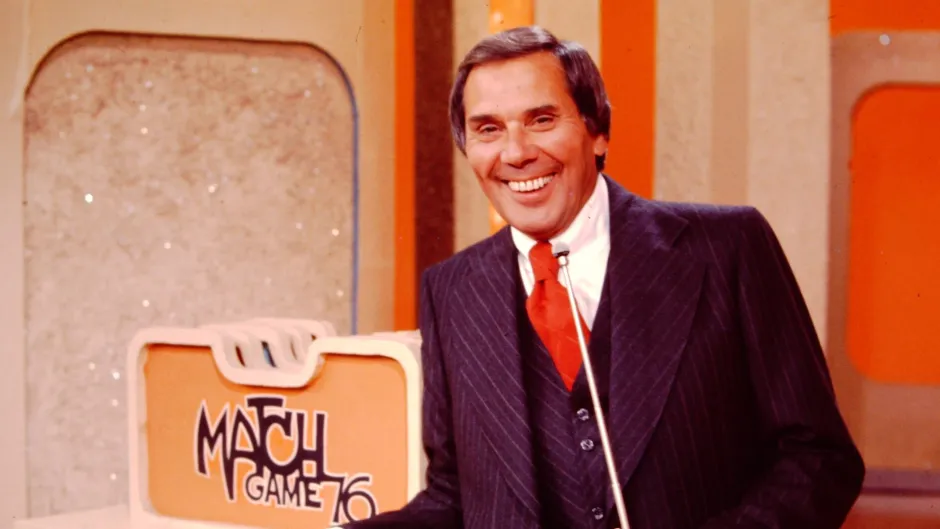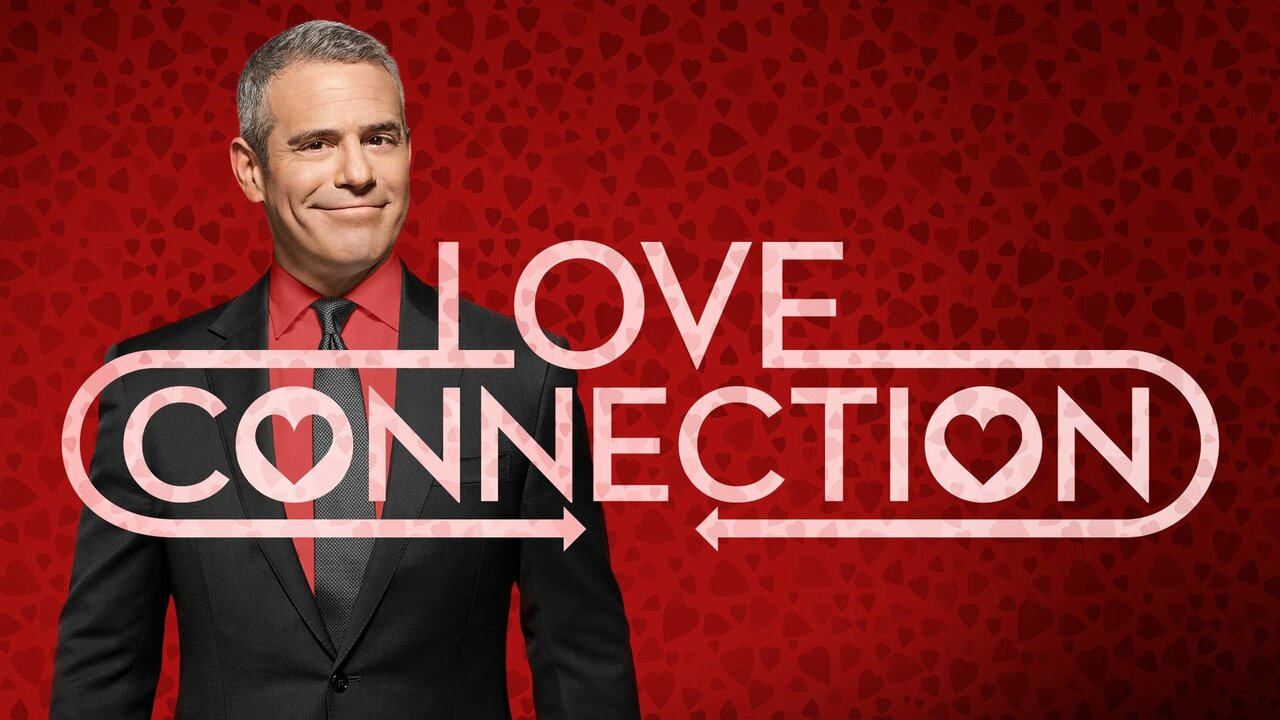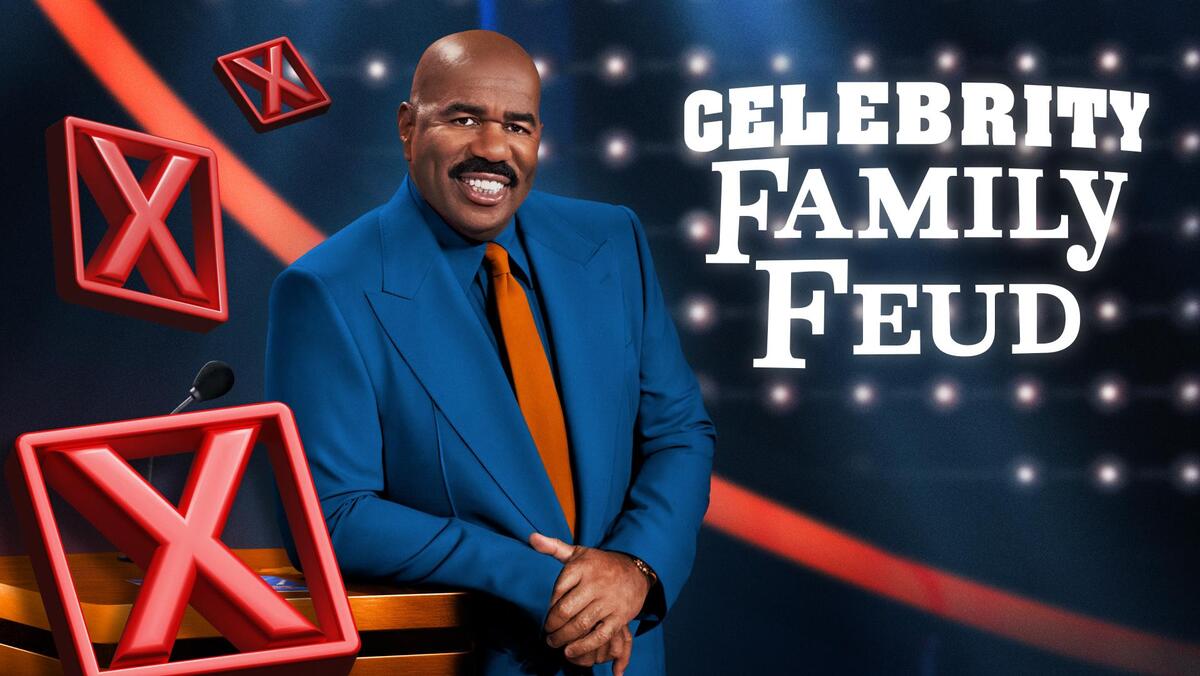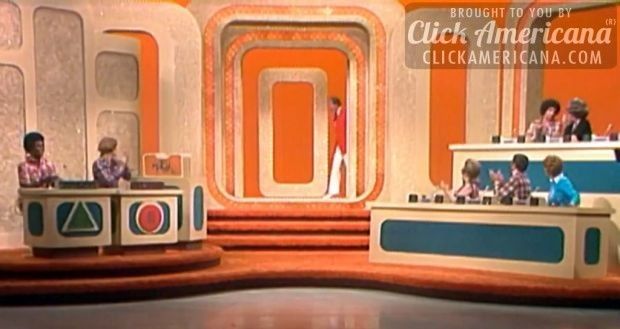“Match Game” stands as an iconic American television game show, initially hitting the airwaves in 1962. Over the years, it has undergone several revivals, notably the Gene Rayburn-led 1970s version and Alec Baldwin’s 2016 rendition. In each episode, a mix of celebrities and regular contestants join forces to tackle questions, striving to align their responses to earn points. The objective is simple: secure as many matches as possible to accumulate points. Renowned for its blend of wit and offbeat humor, “Match Game” has captured the hearts of audiences, ensuring its enduring popularity throughout the decades.
1962–69, NBC
The Match Game debuted on December 31, 1962, with Gene Rayburn as the host and Johnny Olson as the announcer. The initial celebrity panelists were Arlene Francis and Skitch Henderson. The show was filmed in Studio 8H at 30 Rockefeller Plaza in New York City, which has been home to Saturday Night Live since 1975. Originally aired in black and white, it transitioned to color on June 24, 1963.
Teams answered questions and players wrote down their responses privately. A match scored 25 points if two teammates matched, and 50 points if all three did. The first team to reach 100 points won $100 and played the audience match, answering survey questions for cash prizes. The questions evolved from mundane to more risqué in 1963, boosting ratings and leading to an “un-cancellation” by NBC.
The show dominated its time slot from 1963 to 1966 and again from April 1967 to July 1968. Despite strong ratings, it was canceled in 1969 as part of a daytime programming overhaul. The Match Game aired 1,760 episodes until September 26, 1969, with episodes running 25 minutes due to a newscast slot.
On February 27, 1967, a “telephone match” game was added, allowing home viewers to match fill-in-the-blank questions with studio audience members for a chance to win increasing jackpot prizes.
Match Game 73–79 (1973–79, CBS)
In the early 1970s, CBS underwent a programming overhaul spearheaded by Fred Silverman, known as the “rural purge.” As part of this revamp, CBS reintroduced game shows, starting with The New Price Is Right in 1972. This success led to the commissioning of more game shows. In the summer of 1973, The Match Game was revamped by Mark Goodson and Bill Todman, moving the show to Los Angeles, increasing the number of celebrities, and boosting prize money, marking the return of five-figure payouts since the quiz show scandals of the late 1950s.
The revamped version featured Gene Rayburn as host and Johnny Olson as announcer, with two solo contestants aiming to match answers from a six-celebrity panel. Richard Dawson was the first regular panelist. The premiere was delayed due to CBS News coverage of the Watergate hearings.
The initial panelists included Dawson, Michael Landon, Vicki Lawrence, Jack Klugman, Jo Ann Pflug, and Anita Gillette. The show promised “more action, more money, and more celebrities.” Initially, questions were tame, but a shift occurred with more risqué humor, notably marked by the double entendre in one question.
Regular panelists Brett Somers and Charles Nelson Reilly became fan favorites. Other celebrities, including Betty White, Dick Martin, and Marcia Wallace, appeared semi-regularly. Panelists were seated in a strict order, with guest panelists, Somers, and Reilly in the top row, and rotating semi-regulars in the bottom row.
Format
Each episode of Match Game featured two contestants, with one seated in the upstage (red circle) seat and the other in the downstage (green triangle) seat on the CBS version, while positions were determined by a backstage coin toss on syndicated versions. The goal was to match the answers of six celebrity panelists to fill-in-the-blank statements.
The game comprised two rounds (three on Match Game PM). Contestants chose between two statements labeled “A” or “B,” and host Gene Rayburn read the statement while celebrities wrote their answers. Contestants then gave their answers, with celebrities responding one by one.
Initially, questions were tame but quickly became more humorous and risqué, thanks to comedy writer Dick DeBartolo. The audience reacted accordingly, with cheers for good answers and groans for bad ones. The main game awarded points for matching celebrity answers.
Common questions featured characters like “Dumb Dora” or “Dumb Donald,” prompting the audience’s iconic response. Other subjects included celebrities, politicians, and fictional characters like Superman and Lois Lane.
In the second round, contestants aimed to match remaining celebrities. Tiebreaker rounds were played if scores were tied. On Match Game PM, a third round was added to fill the half-hour slot.
The CBS version had returning champions, with games often spanning episodes. Champions stayed until defeated or winning $25,000. The syndicated version featured two new contestants each week.
On Fridays, audience members played a quick game for a small cash prize. Match Game PM episodes were self-contained, featuring two new contestants each week.
Staffing and ratings
The 1973–82 versions of Match Game were produced by Ira Skutch, a seasoned Goodson–Todman producer who also contributed questions and served as the on-stage judge. Marc Breslow directed the show, with Robert Sherman as associate producer and head writer.
After CBS revamped Match Game in 1973 to include more risqué humor, ratings soared, doubling those of the NBC version. Within three months, Match Game ’73 became the most-watched daytime program. By summer 1974, it had become a phenomenon, particularly among high school students and housewives, boasting impressive ratings in the 12–34 age group. Its peak was during the 1975–76 season, achieving a 12.5 rating with a 35 share, surpassing even some prime-time series. It held the title of the most popular daytime program with a record 11 million daily viewers until ABC’s General Hospital captivated audiences with the “Luke and Laura” storyline.
Every New Year’s Eve, the Match Game sign’s two-digit year was updated during a celebratory party with the cast and studio audience. Initially, a new sign was built yearly, but a redesign allowed for interchangeable digits from 1978 onwards. Charles Nelson Reilly ceremoniously changed the sign on-air from “78” to “79,” accompanied by “Auld Lang Syne.”
In 1976, the show’s success led to the creation of Family Feud for ABC, with Richard Dawson as host. Despite Match Game’s ratings dominance, CBS’s scheduling missteps, including moving the show to an unsuitable morning slot in 1977, caused a decline. Eventually, Family Feud surpassed Match Game in popularity, marking the end of its era as television’s top game show.
1978 changes and cancellation
On July 19, 1978, CBS introduced a new look for Match Game, transitioning from the original bright orange set to one featuring blue and white colors, along with a revamped logo. The updated Match Game sign eliminated the need for building a new sign each year, as had been the practice before. Instead, a removable attachment indicating the year was simply replaced, transitioning Match Game ’78 into Match Game ’79 on New Year’s Eve of 1978, officially airing on January 2, 1979. (A different attachment was used for Match Game PM.)
By 4:00 p.m., Match Game found itself trailing behind Family Feud, The Price Is Right, and NBC’s Wheel of Fortune, slipping out of the top three game shows in 1979 for the first time since its CBS debut (despite being a consistent top-3 performer in the 1960s). The final CBS episode, the 1,439th, aired on April 20, 1979. Whew!, a game show hosted by Tom Kennedy, took over Match Game’s time slot when it premiered on April 23, 1979, at 10:30 a.m.
Match Game PM
On September 8, 1975, Match Game PM, the first syndicated version of the popular game show, premiered as a weekly nighttime series. Produced by Goodson–Todman and distributed by Jim Victory Television, the show was quickly picked up by many ABC affiliates, including major stations like WABC-TV in New York.
Unlike its predecessors, Match Game PM featured self-contained episodes, making it convenient for syndication. Initially mirroring the format of the daytime show, it consisted of two rounds of questions, with a third round added in the second season to fill the half-hour time slot. Contestants aimed to score a maximum of six points by matching celebrities’ answers.
Tiebreakers in Match Game PM were unique, featuring a “Super Match” style where contestants wrote their answers to a question and then sought matches from celebrities. Initially involving only regulars Somers, Reilly, and Dawson, all six celebrities participated after Dawson’s departure in 1978.
The show’s Super Match segment offered lucrative prizes, with two audience matches combined and multiplied by ten for the head-to-head match, potentially yielding up to $10,000. The introduction of the star wheel increased this jackpot to $20,000 if a contestant landed on a double.
Despite its popularity, Match Game PM faced a decline in affiliates during its last two seasons, largely due to the launch of a daily syndicated version in September 1979. However, some markets continued to air both editions simultaneously, with WCBS-TV in New York airing the daily version while WABC-TV stuck with Match Game PM until its final season. With 230 episodes spanning six seasons, Match Game PM holds the record as the longest-running syndicated version of the show.
1979–82, daily syndication
After Match Game 79 ended, there was still strong interest in keeping the show alive. Goodson–Todman and Jim Victory Television saw potential in a daily syndicated version, following the success of Match Game PM. Thus, on September 10, 1979, the new daily syndicated Match Game, also known as The Match Game, debuted.
The gameplay closely followed previous versions, maintaining popular features like the star wheel bonus. However, there were tweaks: contestants competed in two-game matches, with each followed by the Super Match segment. Unlike before, winners didn’t earn money, and there were no returning champions; fresh faces started each match.
The star wheel underwent changes, with only three golden star sections, making doubling winnings in the head-to-head match tougher. Contestants still vied for a maximum payout of $21,000, matching Match Game PM.
The panel underwent shifts, with Bill Daily, Dick Martin, Richard Paul, and Bob Barker among the male semi-regulars in the first two seasons. McLean Stevenson became a regular from the third season, appearing frequently till the season’s end.
Airing in the tricky 4:00 p.m. time slot, the syndicated Match Game faced challenges. It impacted shows like Love of Life, which CBS moved to fill the void after canceling Match Game 79. Many stations aired Match Game against Love of Life, leading to declining ratings for the soap. Consequently, several stations, including CBS-owned ones, dropped Love of Life for Match Game. Love of Life bowed out on February 1, 1980, five months after Match Game’s debut.
The daytime syndicated Match Game wrapped up after 525 episodes on September 10, 1982, marking exactly three years since its start.
1983–84, NBC
In 1983, Mark Goodson collaborated with Orion Television and NBC to produce The Match Game-Hollywood Squares Hour, building on the success of Hollywood Squares’ acquisition by Orion. Gene Rayburn returned as host after a stint as a morning show host in New York. However, unlike the regular Squares cast, few familiar faces appeared. Jon Bauman from Sha Na Na hosted the Hollywood Squares segment, swapping seats with Rayburn during each other’s segments. Gene Wood served as the primary announcer, with substitutes including Johnny Olson, Bob Hilton, and Rich Jeffries.
The rules closely resembled those of Match Game PM, with contestants given three chances to match each panelist once. The tie-breaker was a notable difference, where contestants chose from four secretly shown answers to a statement, with the first panelist to match winning the game.
In the Super Match, audience match payoffs were $1,000, $500, and $250. If no audience match was made, the contestant received $100, and the game continued to the head-to-head match. Here, contestants picked a celebrity with hidden multipliers (10, 20, 30), multiplying the audience match winnings to determine the Super Match jackpot, with up to $30,000 available. Champions could stay for up to five days unless defeated.
Airing from October 31, 1983, to July 27, 1984, The Match Game-Hollywood Squares Hour had a brief run. Some of its music cues were later used on The Price Is Right during prize descriptions.
1990–91, ABC
In 1989, ABC revived Match Game for its daytime lineup, ending a hiatus from game show programming since 1987. Initially, Bert Convy was slated to host, and a week’s worth of pilot episodes were ordered. However, just before the planned summer 1990 premiere, Convy was diagnosed with a terminal brain tumor. Ross Shafer, known for hosting The Late Show and Love Me, Love Me Not, took over as host. Gene Rayburn, the original host, expressed interest in returning but was not selected, possibly due to age concerns. Charles Nelson Reilly returned as a regular panelist, and Brett Somers appeared as a guest panelist for several weeks. The panel also featured Vicki Lawrence, Sally Struthers, Brad Garrett, Bill Kirchenbauer, and Ronn Lucas, with Gene Wood returning as announcer. Other familiar faces from earlier versions, such as Marcia Wallace, Betty White, and Dick Martin, also made appearances.
1998–99, daily syndication
In 1996, a pilot was created for a revamped Match Game called MG2: The Match Game, hosted by Charlene Tilton. Although this version didn’t make it to air, producers revised the format, leading to a syndicated revival in fall 1998.
Michael Burger took the hosting reins for this new iteration, with Paul Boland as announcer. Notable returning guests included Vicki Lawrence and Nell Carter, with regular panelists like Judy Tenuta and semi-regulars including George Hamilton and Coolio. Production returned to Studio 33 at Television City Studios.
The gameplay mirrored the 1973–82 versions, but with only five celebrities instead of six. Questions were cleverly titled instead of being labeled A or B. All panelists participated in each round, earning one point for correct matches in the first round and two points in the second.
After two rounds, the higher scorer tackled the Super Match, with a $5,000 top prize. In the head-to-head match, contestants faced a standing celebrity at a podium, a unique feature of this version.
Due to risqué content and off-color humor, the show aired in late-night slots. Lasting just one season from September 1998 to May 1999, with repeats until September 1999, this version had a short-lived run.
2006, CBS
On June 22, 2006, Match Game was featured in CBS’s Gameshow Marathon, led by Ricki Lake and announced by Rich Fields. It was the sixth classic game show showcased and the second semi-final game. Contestants included Kathy Najimy and Lance Bass, with Betty White, George Foreman, Kathy Griffin, Bruce Vilanch, Adam Carolla, and Adrianne Curry on the panel. White was the sole original series member present.
Lake used Rayburn’s iconic long-thin Sony ECM-51 microphone, and the set was faithfully recreated to match the 1973-1978 version. Najimy emerged victorious with five matches against Bass’s three.
The format mirrored Match Game PM, but in the Super Match, the head-to-head match was played for 50 times the amount won in the audience matches ($50,000), which Najimy successfully secured.
2016–21, ABC revival
ABC launched a revival of Match Game on June 26, 2016, airing ten 60-minute episodes. Hosted and executive produced by Alec Baldwin, it marked the show’s return to ABC, which previously aired the 1990 version. The revival was part of ABC’s “Sunday Fun and Games” block, alongside Celebrity Family Feud and The $100,000 Pyramid. Returning to New York, where it originally taped in the 1960s, the show was renewed for a second season on August 4, 2016.
The gameplay mirrored the 1973–79 version, featuring two games with two new contestants each. Winners advanced to the Super Match, with tiebreaker rounds if needed. The audience match offered prizes of $5,000, $3,000, and $2,000, with $1,000 for no matches. The head-to-head match with a celebrity could multiply winnings by five, potentially reaching $25,000.
Inappropriate answers were humorously edited, with effects like a slide whistle sound replacing bleeps. Blurred or pixelated effects were also used. The show filled ABC’s winter schedule starting January 4, 2017, and served as a mid-season replacement on Sunday evenings, replacing Time After Time for three weeks before May sweeps. ABC renewed Match Game for a third season on August 6, 2017, premiering on January 9, 2018, followed by seasons four and five in June 2019 and May 2020, respectively. ABC confirmed the series’ cancellation in April 2022, prior to Alec Baldwin’s involvement in a fatal shooting on the set of Rust in October 2021.
Merchandise
Milton Bradley released several home game versions of Match Game based on the 1960s and 1970s American television show, spanning from 1963 to 1978. The earlier editions featured crayons, wipe-off papers, perforated cards with questions, a scoreboard tray with pegs and chips, and scribble boards. Later editions replaced the boards and crayons with magic slates and styli. The game’s objective was for contestants to match answers with their partners, following similar rules to the TV show.
Different editions were released, including Fine and Collector’s Editions with more questions and deluxe packaging. In the 1970s, Milton Bradley created three more editions based on the CBS version, featuring a game board, booklets with game material, magic slates, styli, and play money. Contestants aimed to match celebrity answers, with the winner advancing to the Super Match round for a chance to win money.
Uproar.com released an online version of Match Game in 2001, but the website was shut down in 2006. GSN offered an interactive version on its website, allowing users to play along with the show. Additionally, a video slot machine based on the 1973–82 version was released at US casinos in 2004.
Several DVD collections of Match Game episodes were released, including “The Best of Match Game” featuring over 30 episodes from the 1970s version and the original 1962 pilot episode. Endless Games also released a DVD game in 2007, featuring questions and clips from the 1970s version, with gameplay similar to the original show.
Match Game Talent
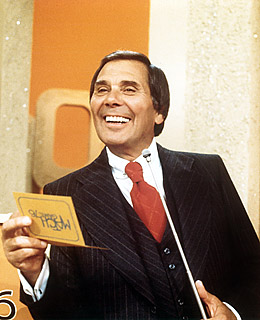
Gene Rayburn, Host
Gene Rayburn (1917-1999) was a renowned American TV personality who hosted MATCH GAME for over two decades. He started in radio and performed in Broadway’s “Bye Bye Birdie.” Rayburn honed his interviewing skills as a panelist on game shows like “What’s My Line?” and “To Tell the Truth” in the 1960s and 1970s before becoming the host of MATCH GAME in 1962.
